Comments
- No comments found
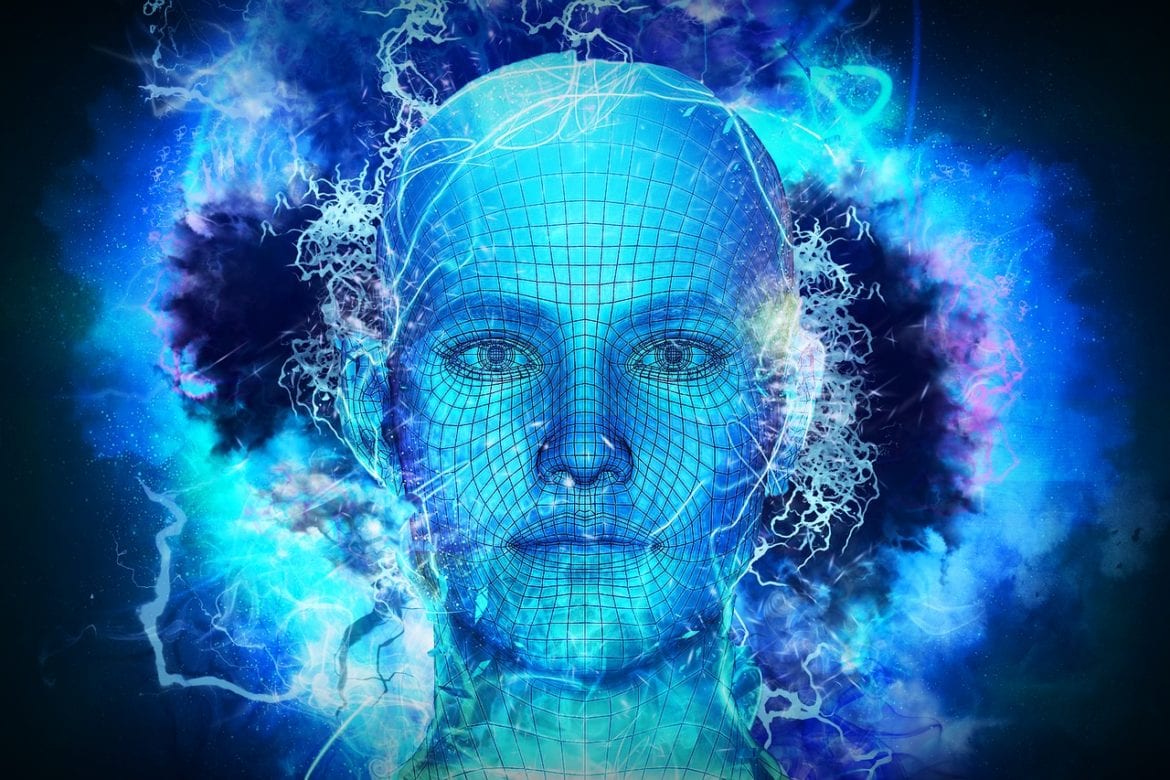
By combining artificial intelligence (AI) and big data, organizations can see upcoming trends in key sectors.
These sectors include business, technology, finance, and healthcare. AI is the simulation of human intelligence by computers. By applying machine learning algorithms, we can make ‘intelligent’ machines, which can employ cognitive reasoning to make decisions based on the data fed to them. Big Data, on the other hand, is a blanket term for computational strategies and techniques applied to large sets of data to mine information from them. Big data technology includes capturing and storing the data, and then analyzing data to make strategic decisions and improve business outcomes. Most companies deploy big data and AI in silos to structure their existing data sets and to develop machines which can think for themselves. But, big data is in reality the raw material for AI. So, when big data meets AI, they have the potential to transform both, the way data is structured and the way machines learn.
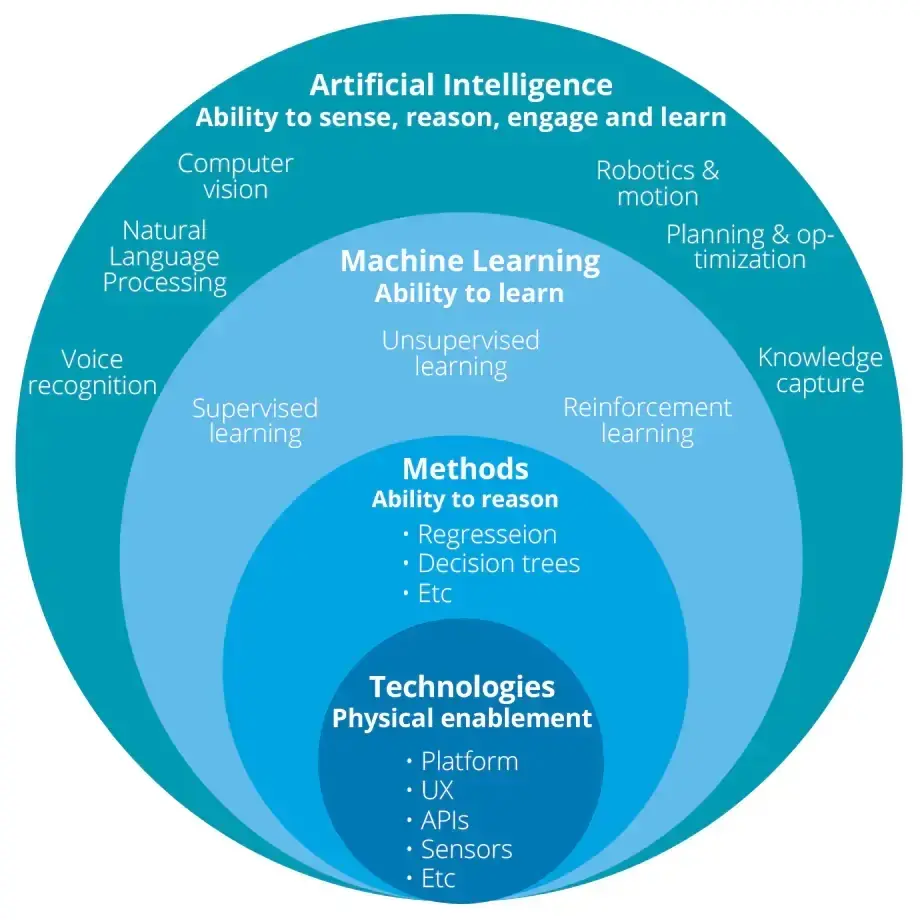
Artificial intelligence (AI) leverages computers and machines to mimic the problem-solving and decision-making capabilities of the human mind.
It is a constellation of many different technologies working together to enable machines to sense, comprehend, act, and learn with human-like levels of intelligence.
Here are the subsets of artificial intelligence:
Big data is data that contains greater variety, arriving in increasing volumes and with more velocity.
Although the concept of big data itself is relatively new, the origins of large data sets go back to the 1960s and ‘70s when the world of data was just getting started with the first data centers and the development of the relational database.
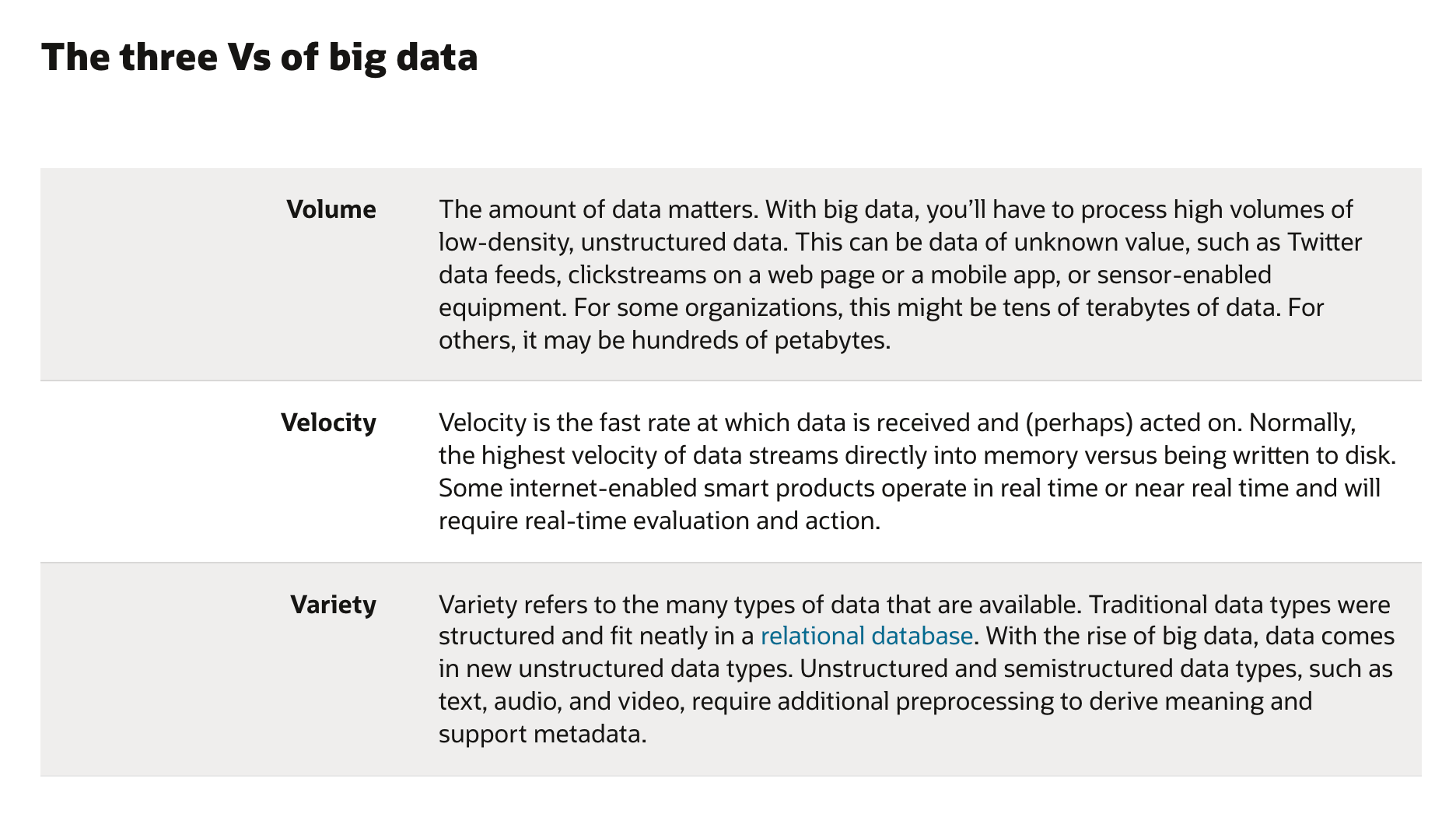
Corporations analyze and manage extensive data sets every day. Client information, employee details, business statistics, all put together, can be a huge collection of unstructured data that can be sorted and studied for business optimization. Big data provides solutions to collect and store data in a robust manner, while AI, with its machine learning techniques, learns from the data sets to make better decisions in the future.
Here are the benefits of big data:
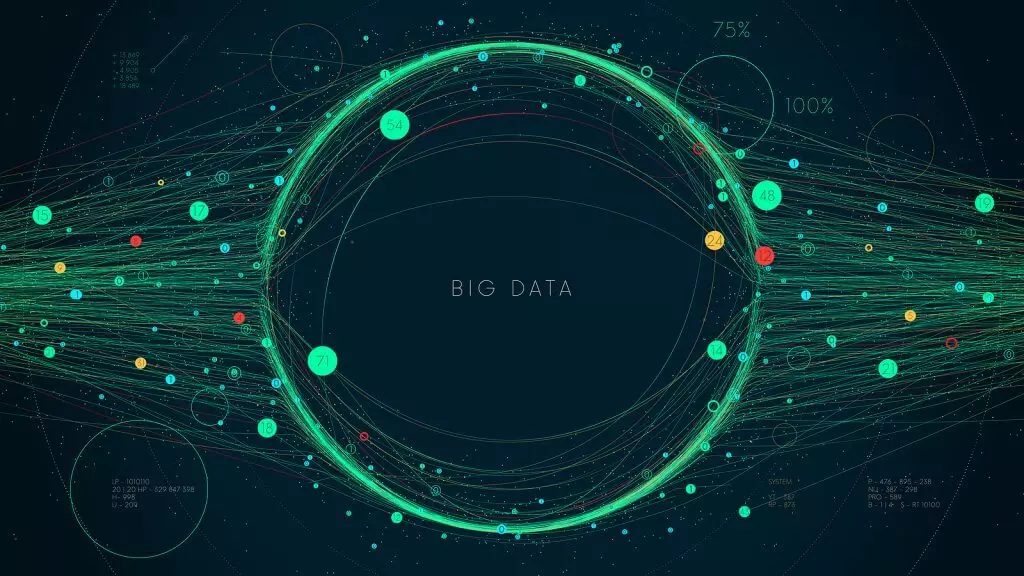
Big data cuts business costs.
Big data increases efficiency.
Big data improves pricing.
Big data provides more tools to compete with big businesses.
Big data allows organizations to focus on local preferences.
Big data helps increase sales and loyalty.
Big data ensures you hire the right employees.
The retail brand Walmart is already using big data with AI to revise their business structure. With over millions of customers accessing their online and offline stores every single day, Walmart collects customer data in the range of petabytes. Big data analysts work on the vast data set, helping their machine learning algorithms master the decision-making skills. Studying the trending products on the site, patterns in customer buying habits, and relations between the demand and supply of goods, helped Walmart remodel its website and inventory to suit the needs of their customers, thus boosting their business.
AI algorithms usually work on sample data sets to in the machine’s initial stages of learning. However, clubbing the algorithms with live data allows machines to learn from actual data sets rather than sample ones. Thus, we can efficiently train our machines to make better decisions right from the learning stage.
An excellent example of this comes from the meteorology department. Servers in weather observatories receive data in the form of text, images, and videos from satellites, weather stations, and relay boards from all over the world. Big data coupled with AI is used in these domains to efficiently store the data and then work on it using image and video processing techniques for weather predictions.
Here are the benefits of artificial intelligence:
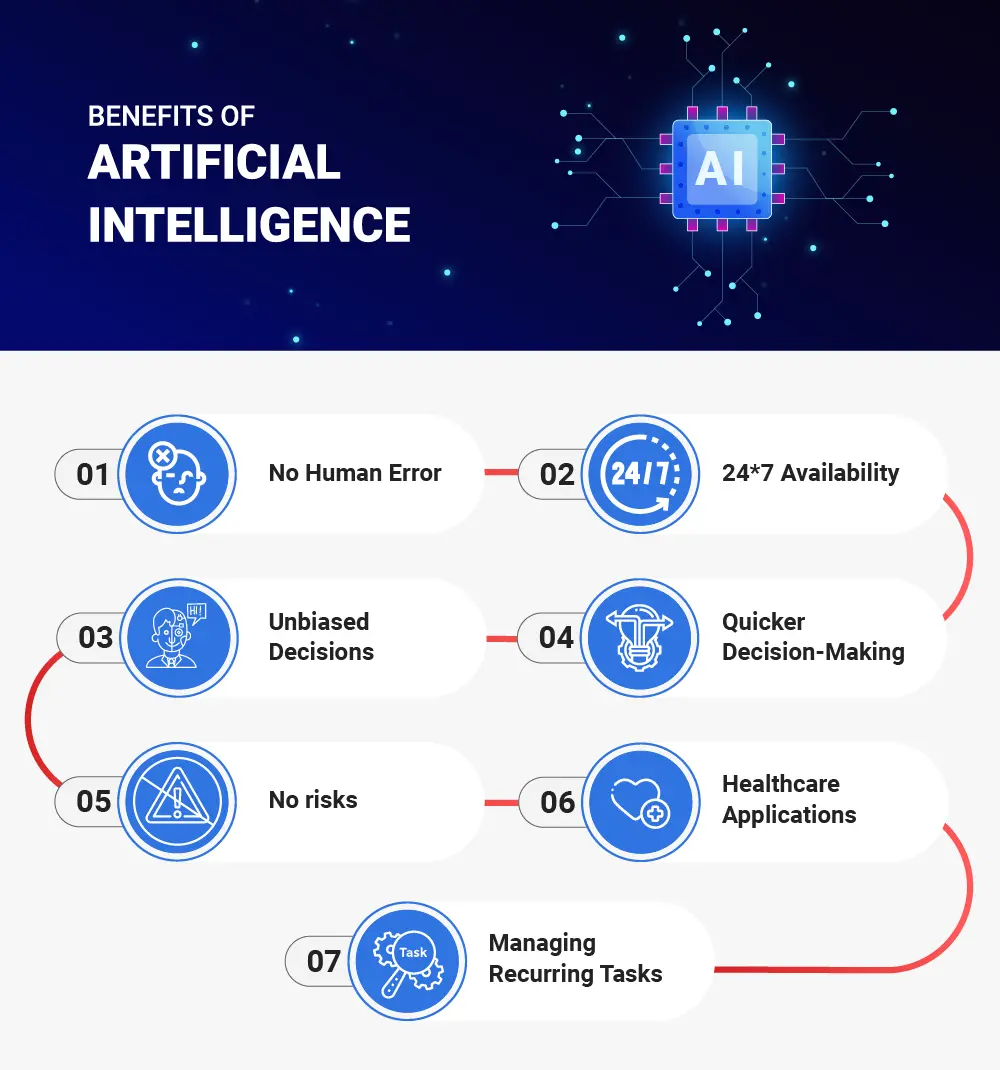
1) Less Human Errors: There is less room for error with artificial intelligence.
2) Doing More Complex Tasks: Artificial intelligence can perform a more laborious task with extra hard work and with greater responsibility.
3) Available 24/7: Educational Institutes and Helpline centers are getting many queries and issues which can be handled effectively using AI.
4) Providing Digital Assistance: Virtual assistants inside smartphones, PCs, or connected home speakers, like Apple’s Siri, Microsoft’s Cortana, Google’s Google Now, Samsung’s Galaxy S8’s Bixby and Amazon’s Alexa, provide contextual information.
5) Assisting Humans in Repetitive Tasks: In banks, we often see many verifications of documents to get a loan which is a repetitive task for the owner of the bank. Using AI Cognitive Automation the owner can speed up the process of verifying the documents by which both the customers and the owner will be benefited.
6) More Productive: Emotions are not associated with artificial intelligence robots and therefore the mood doesn’t hamper the efficiency. Thus they are always productive.
7) Educating The Next Generation: Nowadays, medical professionals are trained with artificial surgery simulators. It uses applications which help in detecting and monitoring neurological disorders and stimulate the brain functions.
8) Right Decision Making: The integration of AI tools in the business world has improved the efficiency of organizations.
Although computers cannot match human brains on a cognitive level, they are essential to sort and organize the vast data sets we deal with in the modern world. By merging AI and big data, we can obtain a structured real-time database, which can further be used in a variety of applications. Though the merger of these two domains is still in progress, we can expect rapid breakthroughs in the way we handle extensive data sets in businesses and in everyday lives.
Naveen is the Founder and CEO of Allerin, a software solutions provider that delivers innovative and agile solutions that enable to automate, inspire and impress. He is a seasoned professional with more than 20 years of experience, with extensive experience in customizing open source products for cost optimizations of large scale IT deployment. He is currently working on Internet of Things solutions with Big Data Analytics. Naveen completed his programming qualifications in various Indian institutes.
Leave your comments
Post comment as a guest